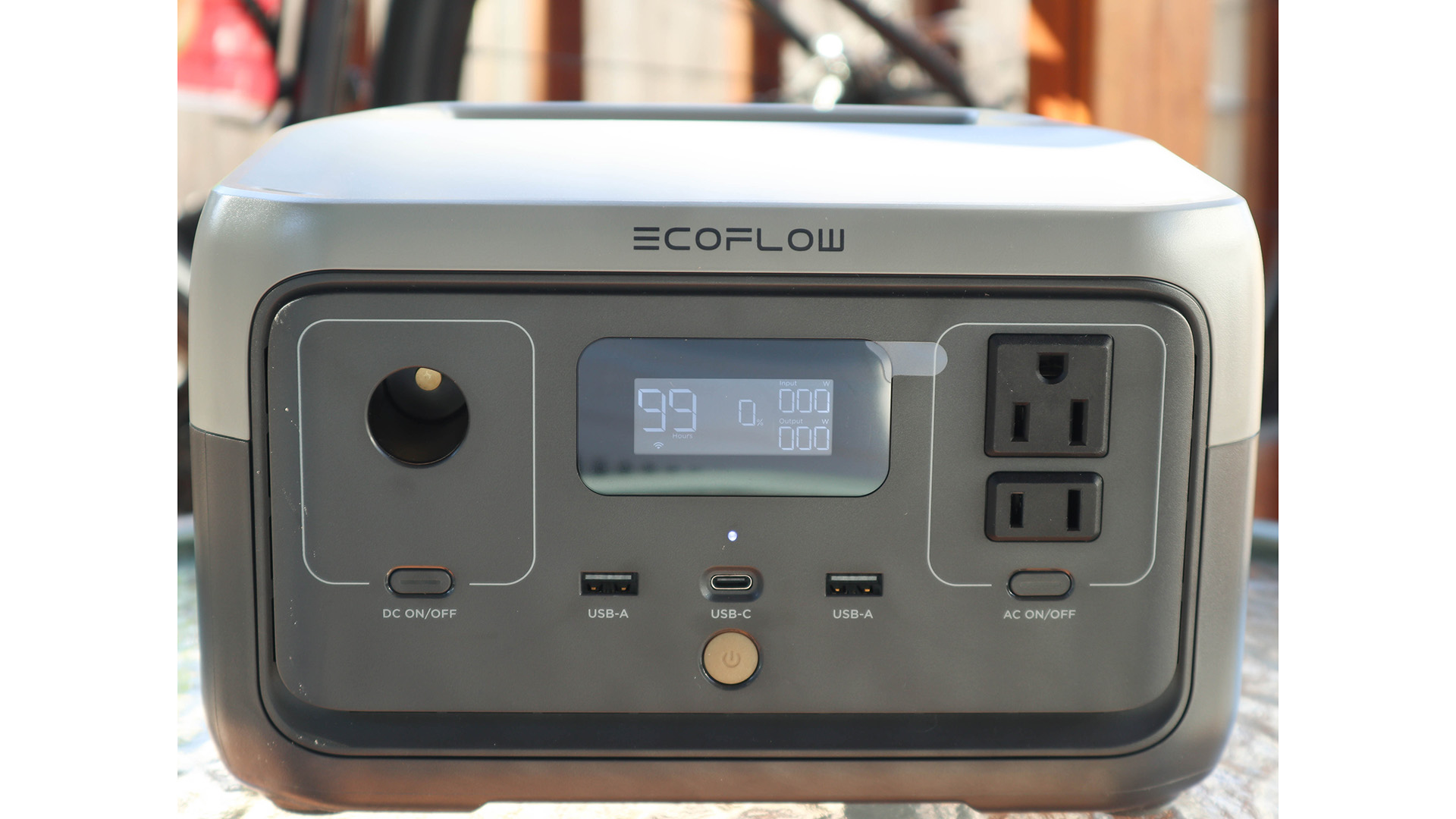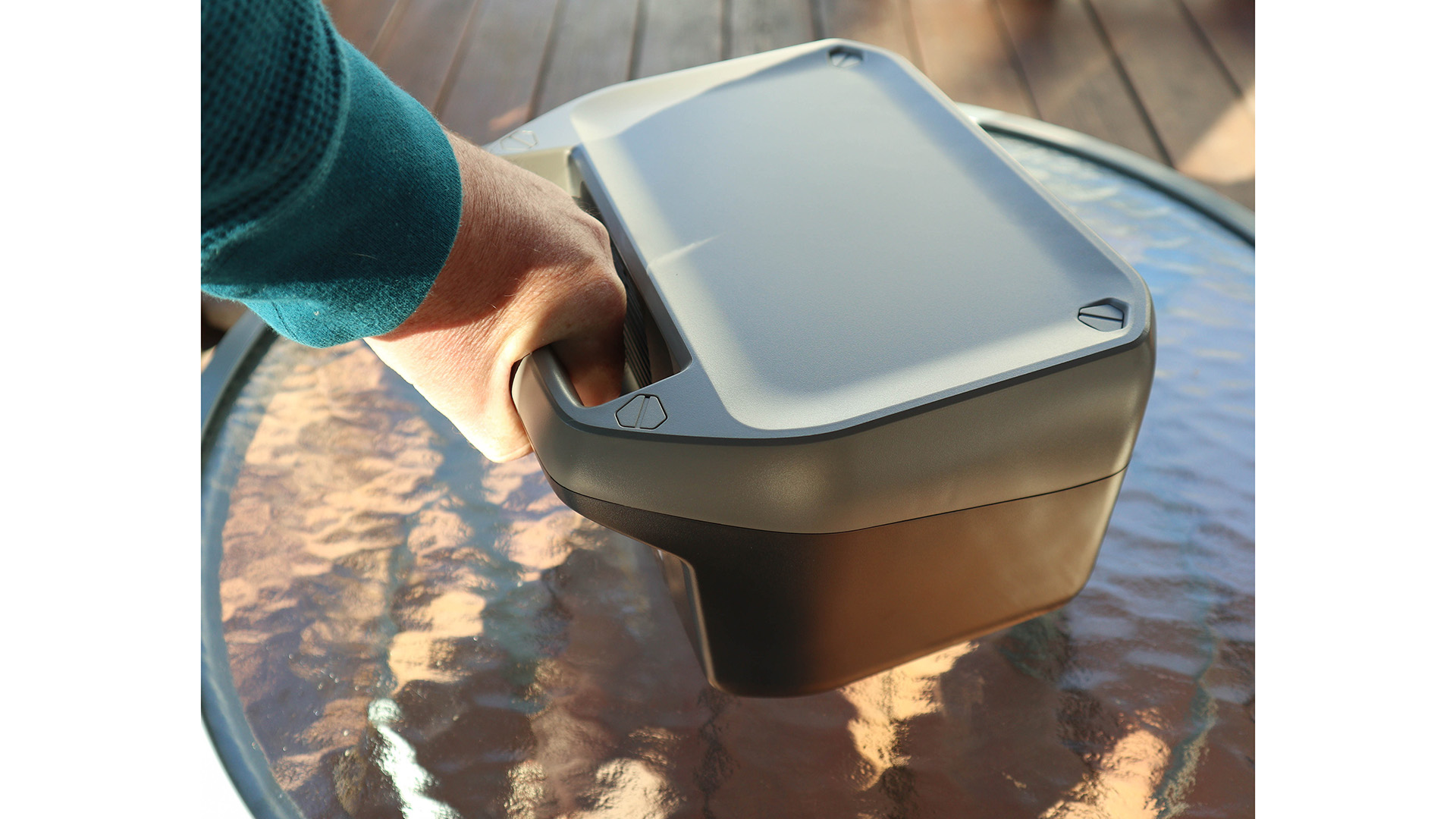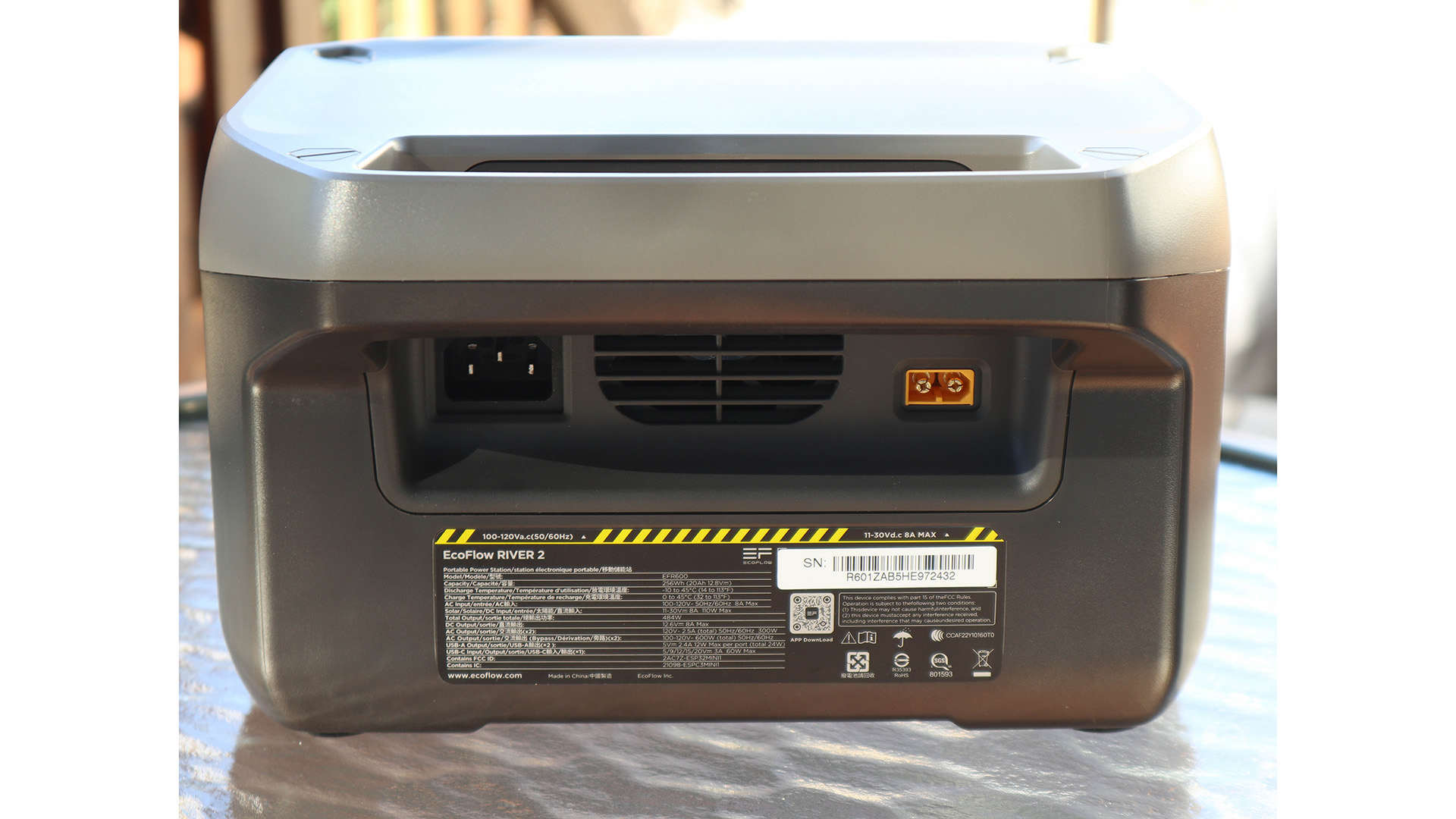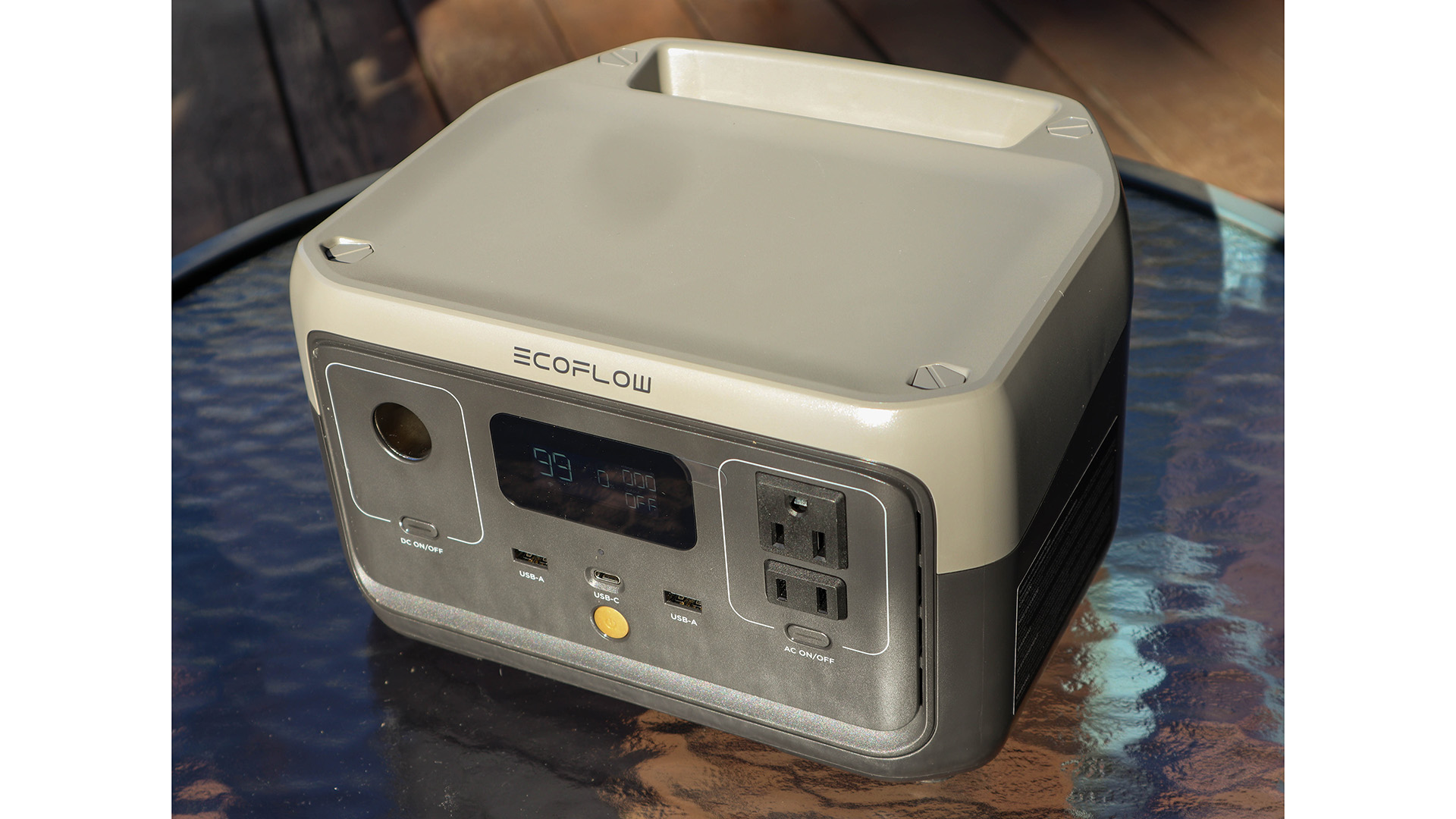EcoFlow River 2 Portable Power Station Review: Portable Power Station Gets More Portable
The EcoFlow River 2 is lighter and has a more helpful mix of outputs than its predecessor – and it takes less than an hour to charge


The EcoFlow River 2 is a compelling, lightweight portable power station for weekends away, as it offers enough capacity to keep phones, cameras, and laptops charged up.
-
+
Charges in an hour from AC
-
+
Lighter than previous models
-
+
USB-C port can charge larger devices like laptops
-
-
Only one 3-pin AC output: second is 2-pin
-
-
Slower to charge from power sources other than AC power
-
-
300 Watt limit on AC outputs means no big fans, portable ovens, or heaters
Why you can trust T3

The EcoFlow River 2 is a small, easy-to-use portable power station that can hold a decent amount of charge (and refill it very quickly) and has plenty of ways to access it, making it an excellent pick for keeping phones, laptops, and small appliances running on a weekend away. The EcoFlow River 2 is improved over the original, with more outputs: three USB and two AC outputs and the same capacity in a lighter package: 7.7lbs (3.5kg) (5kg) against the 11lbs of the original River. For something that you would carry with you uphill and across the dale, that’s a big difference.
ECOFLOW RIVER 2 PORTABLE POWER STATION: SPECS
Capacity:256 Wh
Weight: 3.49kg/7.7lbs
Measurements: 622x546x368mm/24.5x21.5x14.5”
Solar:110 W through lighter input, with included MC4 adapter
Outputs: 6 total - 2 x USB-A (12 W), USB-C (60 W), Lighter (100W), 2 x 110V or 1x 230V AC (300W, 600W surge)
Inputs: 110V (360W) or 220-240V (UK), lighter/solar (110W) USB-C (60 W)
ECOFLOW RIVER MAX PORTABLE POWER STATION REVIEW: PRICE AND RELEASE DATE
The two smaller models in the EcoFlow River 2 series are now available direct from Ecoflow or other retailers. There are three models in total: the £269 / $299 256Wh, 300W River 2 that I tested, and the £549 / $599 512Wh, 500W River 2 Max. The larger £749 / $649 768Wh, 800W River 2 Pro will be available soon, according to EcoFlow.

ECOFLOW RIVER 2 PORTABLE POWER STATION REVIEW: FEATURES AND WHAT’S NEW
The mix of outputs has changed from the original River. For the US market, the River two has two 110V AC outputs (one of which is a 2-pin plug for non-grounded devices) and three USBs, one of which is a USB-C connection that can offer up to 60 Watts. In the UK, it has one three-pin 230V AC output.
River 2 has also had some changes made on the inside from the original River, with EcoFlow moving to Lithium Iron Phosphate batteries (usually called LiFePO4 or LFE type). This newer type of battery replaces the Lithium Ion ones used in the original River, offering the advantage of standing up better to the rigors of heavy use and behaving better in the cold. EcoFlow claims they will keep working for 10 years or 3000 charge cycles. They only offer a 5-year warranty, though.
The included WiFi and Bluetooth on the River 2 connect the portable power station to your phone. The EcoFlow app (available for iOS and Android) can monitor the charge level, turn outputs on and off, and generally see what’s up with the battery.
Passthrough power is also supported, which means you can use the power outputs while the battery is charging. That’s a plus for home use, as it means you can use River 2 as an emergency backup power supply for medical devices like CPAPs or tropical fish tanks. It won’t work for computers, though, as it takes about 30 milliseconds to switch from external to internal power, which is long enough to mess up a computer. But it works well as an emergency power backup for devices that are less finicky about a minor power interruption.

ECOFLOW RIVER 2 PORTABLE POWER STATION REVIEW: PERFORMANCE
The River 2 delivers the power it stores without fuss: I could use it to run and charge laptops, phones, cameras, and small appliances like a fan. My phone charged at a decent rate of 14 Watts, while my laptop got the maximum 60 Watts that the USB-C port on the front of the River 2 could output.
Get all the latest news, reviews, deals and buying guides on gorgeous tech, home and active products from the T3 experts
The two AC outputs can manage 300 Watts or 600 Watts for a short time. That limit means that while it was fine for a fan and a small blender, you can’t run anything larger: I found that a small toaster oven and an electric heater tried to pull too much power and tripped the overload. When these greedy appliances were connected, River 2 tried to keep up, but after about 30 seconds, it turned the socket off. Once I unplugged the device, it quickly reset, and was able to power other devices, though.
The capacity of the River 2 is the same as its predecessor, holding about 256 Watt Hours. That’s enough to charge an iPhone 14 Pro up to 15 times or a laptop like the Dell XPS 13 about four times. That should be plenty for keeping several devices charged for a weekend camping trip.
The River 2 is speedy to charge from a wall socket: I found it was fully charged just under an hour after plugging it in because it can draw a hefty 340 Watts of power directly from a 110 or 240 Volt wall socket. You don’t need any power adapters here: a kettle-style power cable plugs straight into the back of the River 2, so you can use the same cable to charge the River 2 that you use to run an appliance. That’s a handy feature to make the most of any available power on a more extended trip.
You can also charge the River 2 from a USB-C power supply (like the ones used on most modern laptops), a car lighter socket, or a solar panel. These are slower than the wall socket, though: I found that even a large USB-C laptop power adapter only charged it at about a third of the speed of the wall socket, and the River can only handle about 110 Watts of juice from a solar panel.
I tested it with a 100 Watt solar panel that EcoFlow sent with the River 2, which only managed to deliver about 50 Watts on a sunny day. That meant it would take a couple of days to charge the River 2 fully.

ECOFLOW RIVER 2 PORTABLE POWER STATION REVIEW: VERDICT
The River 2 is an attractive package: it provides a good amount of charge in a compact, portable package. It is also cheap enough to buy for the odd weekend or as a backup for your fish tank. You should consider what you are using it for, though: will the 300 Watts of output be enough to run the devices you need? It’s more than adequate to keep a few phones, cameras and the odd laptop charged, but it won’t be able to handle anything larger than a blender in terms of appliances.

ECOFLOW RIVER 2 PORTABLE POWER STATION REVIEW: ALSO CONSIDER
There are lots of excellent portable power stations on offer, ranging in size from pocket to pick-up with a forklift. The Biolite BaseCharge 1500 is a larger and more powerful model that offers more power storage but at a higher price. That can run many more devices than the River 2, so it would be a good pick for a tech-heavy camping trip. The Jackery Explorer 500 is more expensive than the River 2, but also offers double the capacity and can drive larger appliances from the AC outlet.

Richard Baguley has been writing about technology since the 1990s, when he left a promising career in high finance to work on Amiga Format magazine for Future. It has been downhill for him ever since, writing for publications such as PC World, Wired and Reviewed.com. He has tested gadgets as diverse as 3D printers to washing machines. For T3, he covers laptops, smartphones, and many other topics. He lives near Boston in the USA with his wife, one dog, and an indeterminate number of cats.